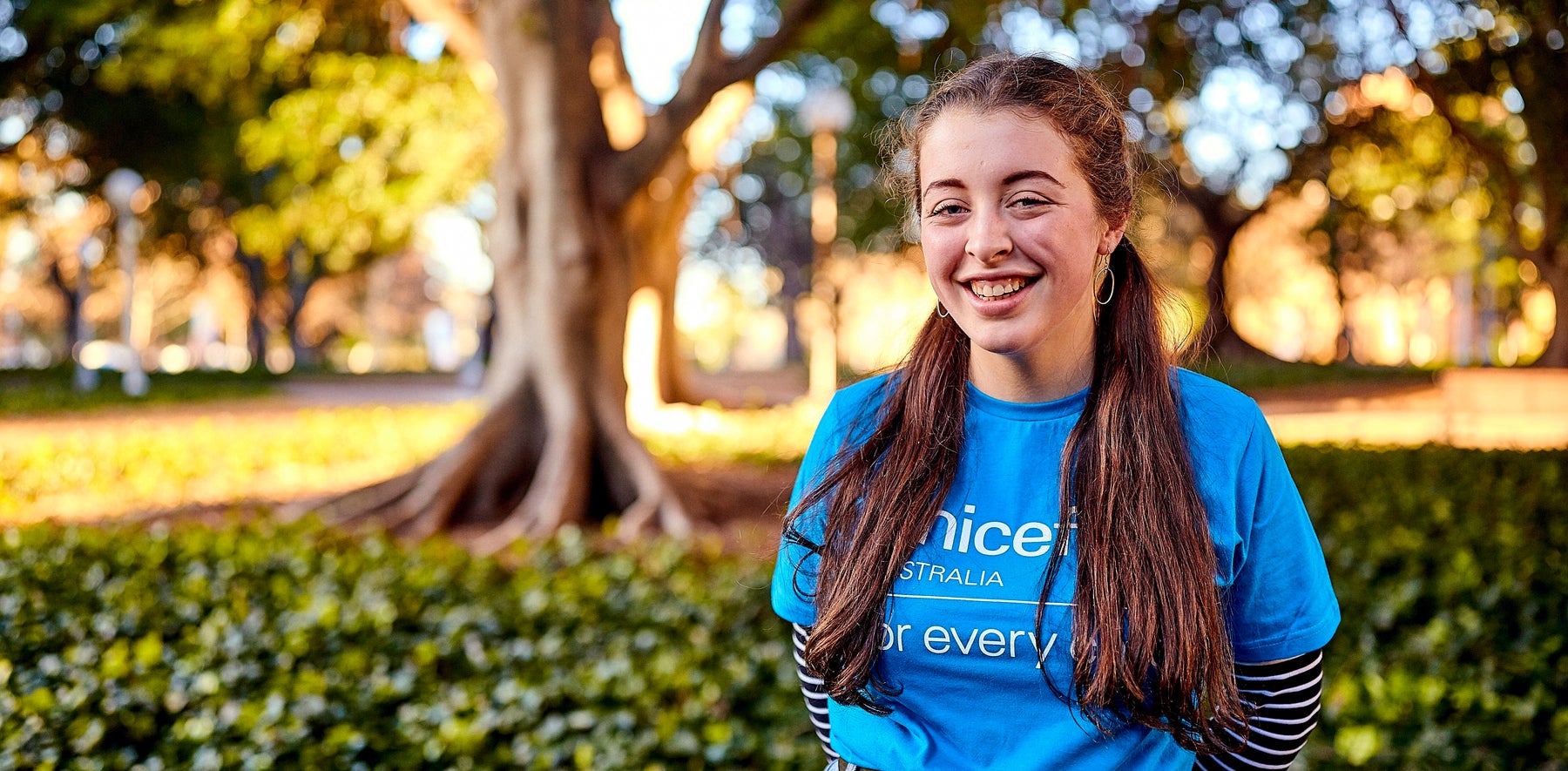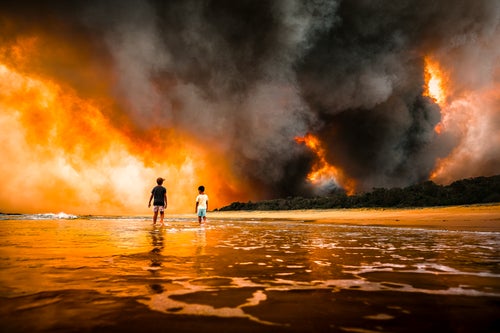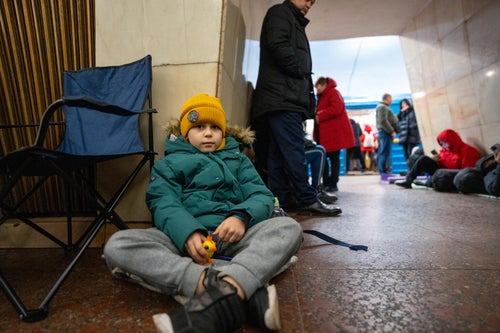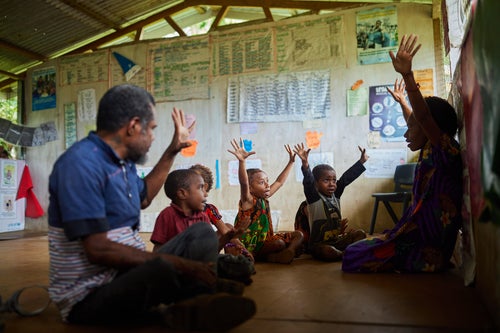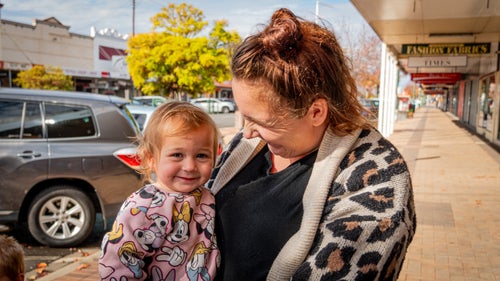Ever since I could talk I’ve been called one thing: BOSSY.
And because I heard it over and over again, I started to believe it was true. I was never told that I had qualities that made me a good leader or praised for taking charge – I was told I was bossy.
Growing up, when I was with friends or my little sister (especially with my little sister) I was the one who would organise, create and delegate the games we’d play. I was a loud and a confident leader.
However, when it came to the classroom or mixed sports team I became shy. It only got worse the older I got; I wouldn’t run in PE in case I was laughed at by one of the ‘popular boys’, and I wouldn’t raise my hand in class because I thought I was wrong.
"...I wouldn't raise my hand in class because I thought I was wrong."
For me the one place I was able to flourish and be a leader was Girl Guides, because as sad as it is, being away from boys was empowering for me. And sadly, I know this is true for so many girls.
Words have power. The language we use and the way we act towards children and young people affects how they perceive themselves and others. It shapes generation after generation of girls who don’t think they’re good enough, and boys who think they are entitled to a higher level of respect than women.
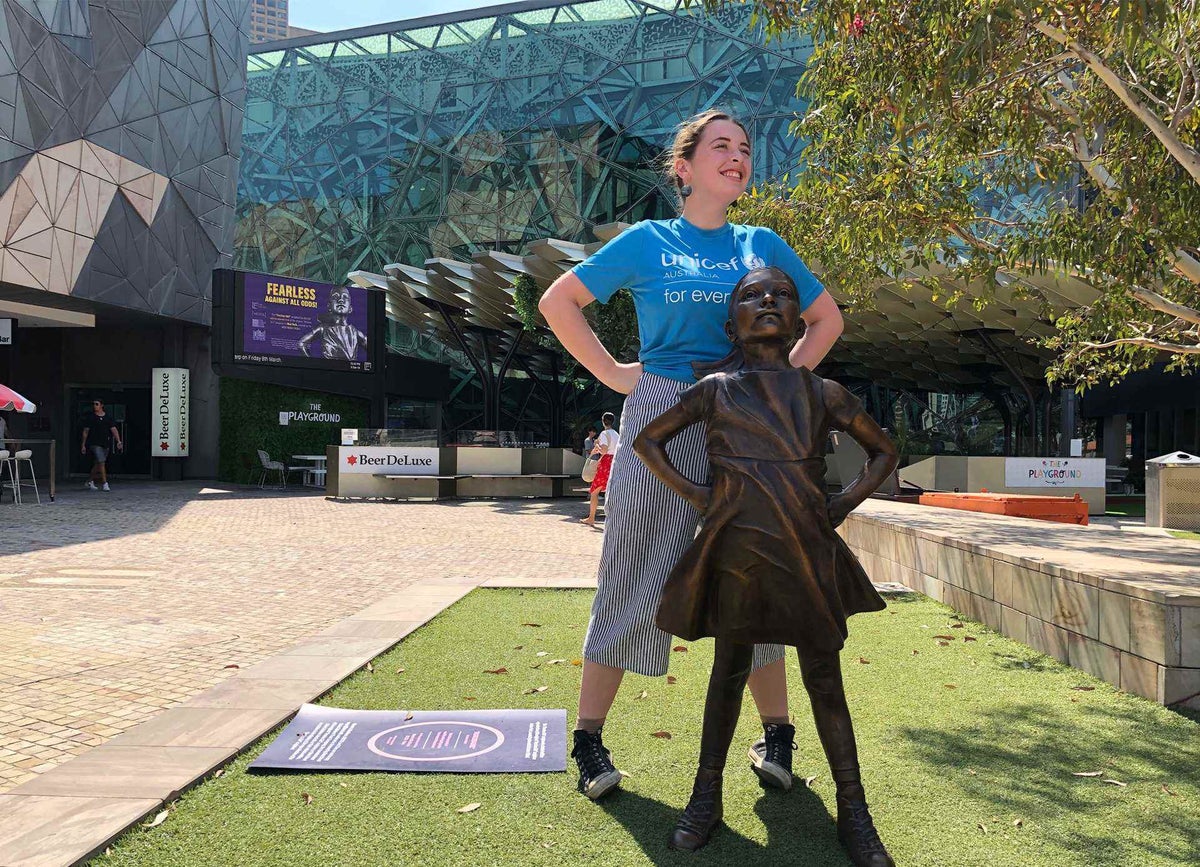
Even if you didn’t realise it at the time, you may have altered your language to ‘suit different genders’, like complimenting a little girl on her dress before her intelligence, or asking for strong boys to carry something for you.
These throwaway comments aren’t so throwaway. They influence the way children and then teens and then young adults think and act. It reinforces ideas of appearance being the most important thing about a woman, or strength being valued in men over emotion.
When we use words like ‘bossy’ it gives positive traits like confidence a negative connotation. I have seen way too many girls go from bubbly and loud children who could put an annoying classmate in their place, to girls who sit in the back of the class brimming with good ideas, but too self-conscious to raise their hand.
"These throwaway comments aren't so throwaway."
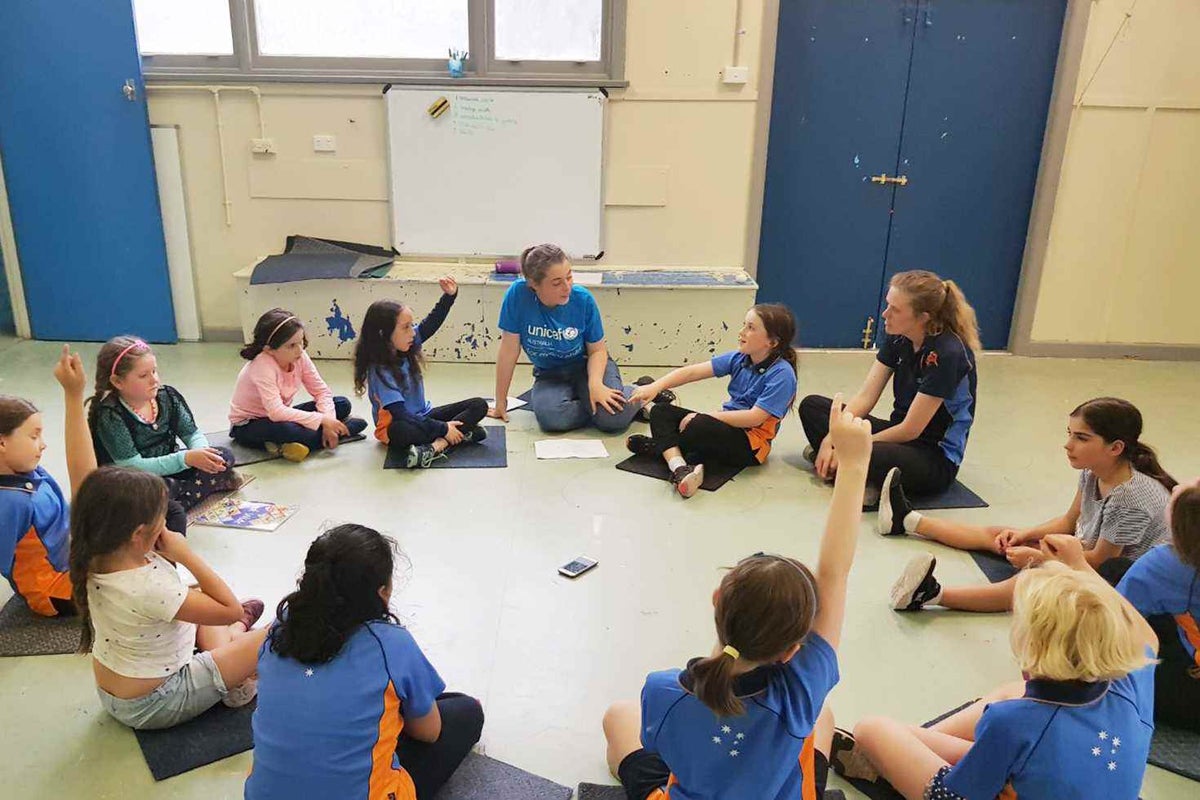
In the last year, I spoke to young people from ages 7-17, I spoke to girls in Girl Guides and kids in both public and private schools. One of the topics that we discussed was equality and within that gender came up a lot.
At many of the schools I noticed that the younger girls - those in primary school - were confident and interested in positions that would allow them to make big decisions like politicians and CEOs. But the older girls couldn’t get far enough away from decision making positions.
The quote below is from a female student from Victoria:
I think every adult should know...
"That as a girl, when I see the way male politicians/men in general treat women it makes me fearful and DEFINITELY doesn't make me want to be involved in politics."
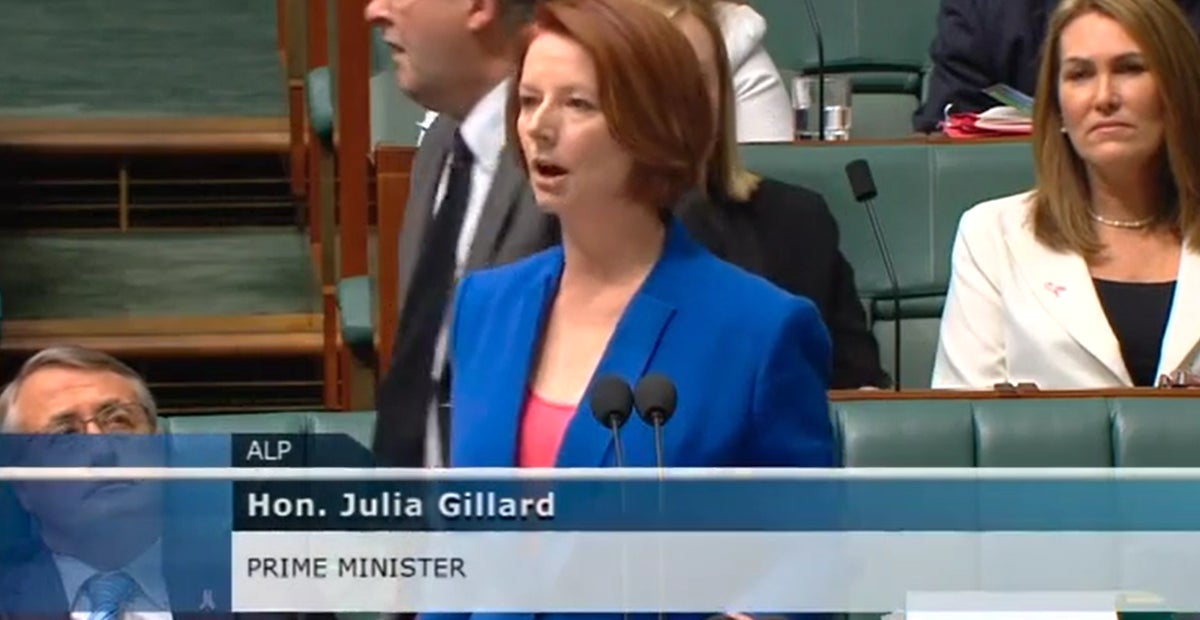
A look back at Julia Gillard's 2012 speech.
This is reflected in the way we treat our female politicians. For example even though I was only 10 in 2011 I remember watching the news with my mum and seeing Tony Abbott proudly standing in front of signs saying ‘ditch the witch’ and ‘Bob Brown’s Bitch’.
Now regardless of Julia Gillard’s policies or how she was doing as Prime Minister, at just 10 I was exposed to the way we treat women. I remember my mum saying to me that Australia wasn’t ‘ready for a female Prime Minister' and at 10 I accepted that. I shouldn’t have.
Despite how clueless lots of adults think we kids are, we can see that it isn’t easy to be a female politician. Like the way a female politician’s clothing is more important than her policies.
Or that she is described as cold and unfeeling because she doesn’t want kids, or is abandoning her job because she does have kids. How can we expect to have equal representation in government when being female and a politician seems horrible to girls and young women?
If we want more women in powerful positions (which we definitely do) we need to change the way we speak to and about women and young girls to encourage them to take on more leadership roles.
"I remember my mum saying to me that Australia wasn’t ‘ready for a female Prime Minister’ and at 10 I accepted that. I shouldn’t have."
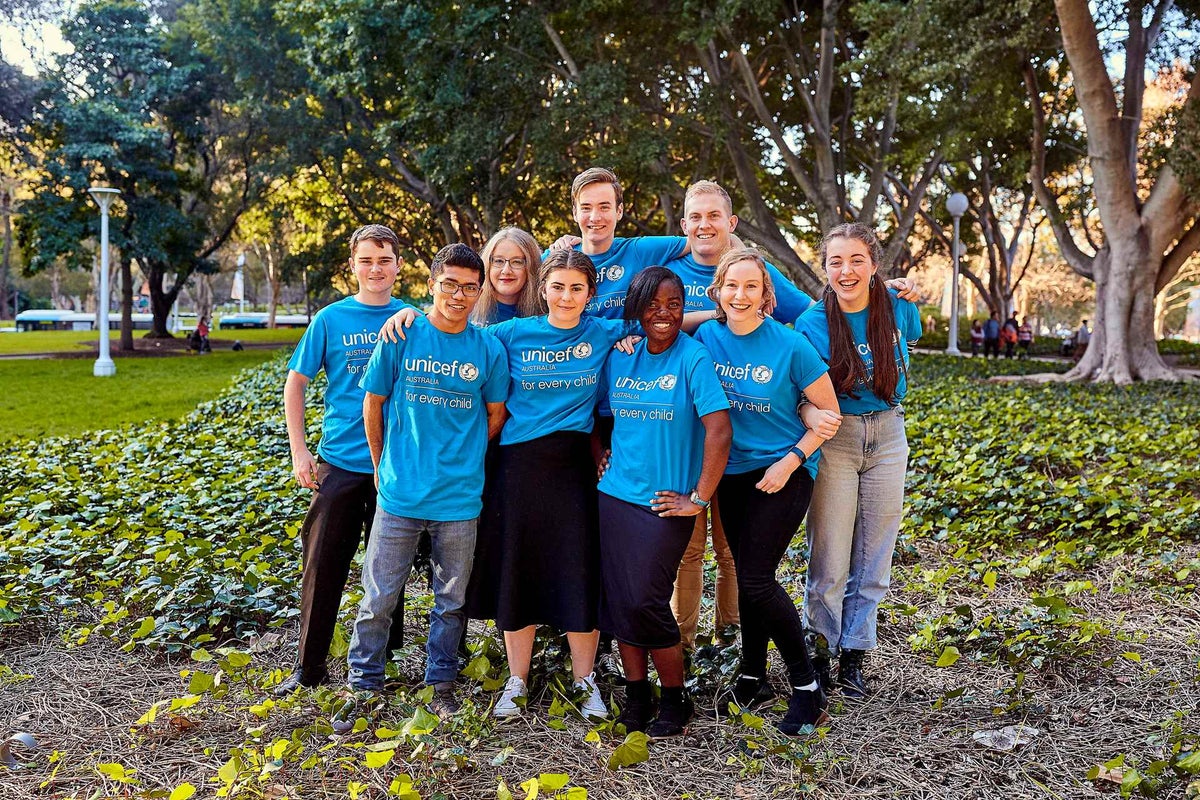
Related articles
Stay up-to-date on UNICEF's work in Australia and around the world



